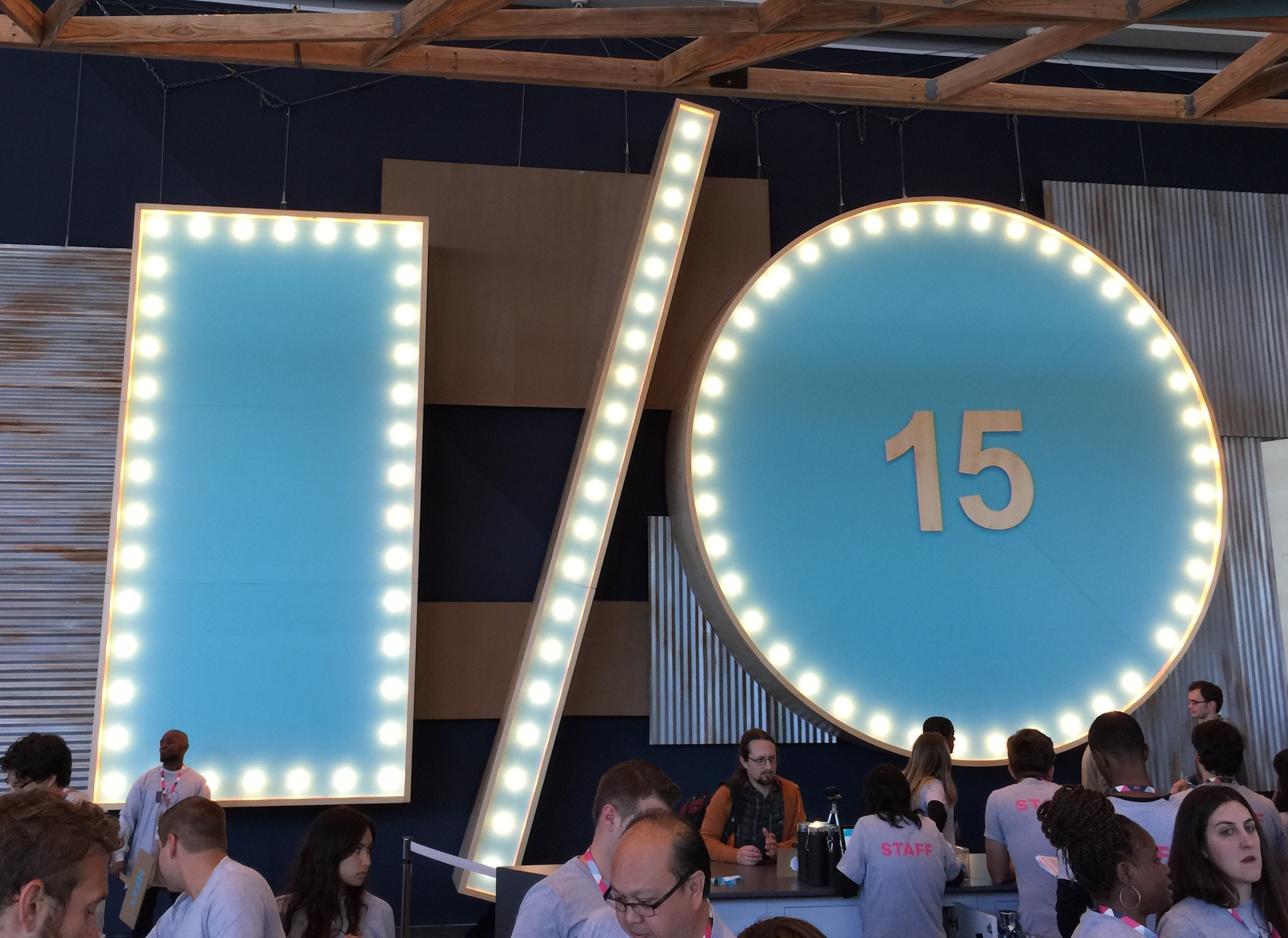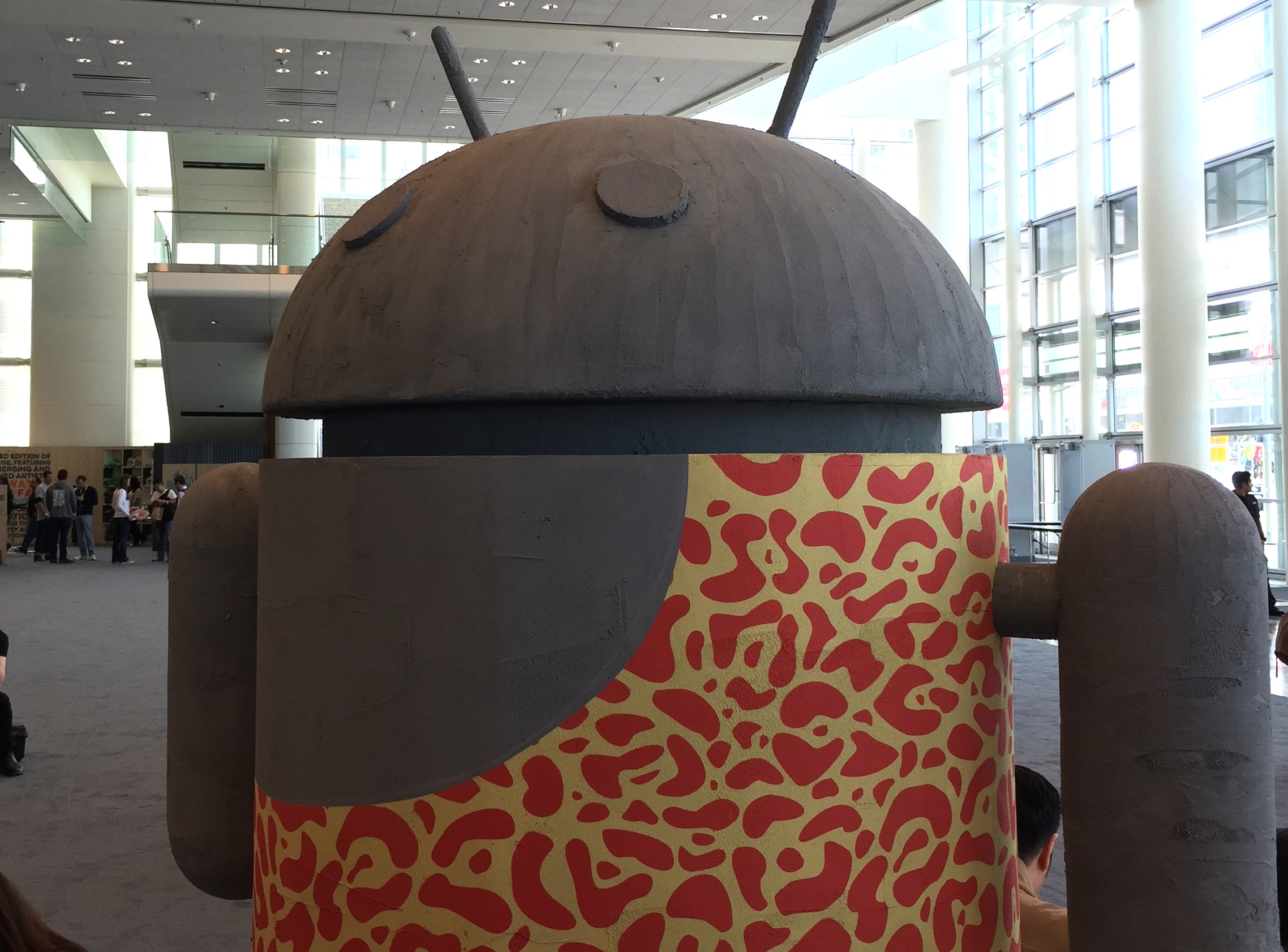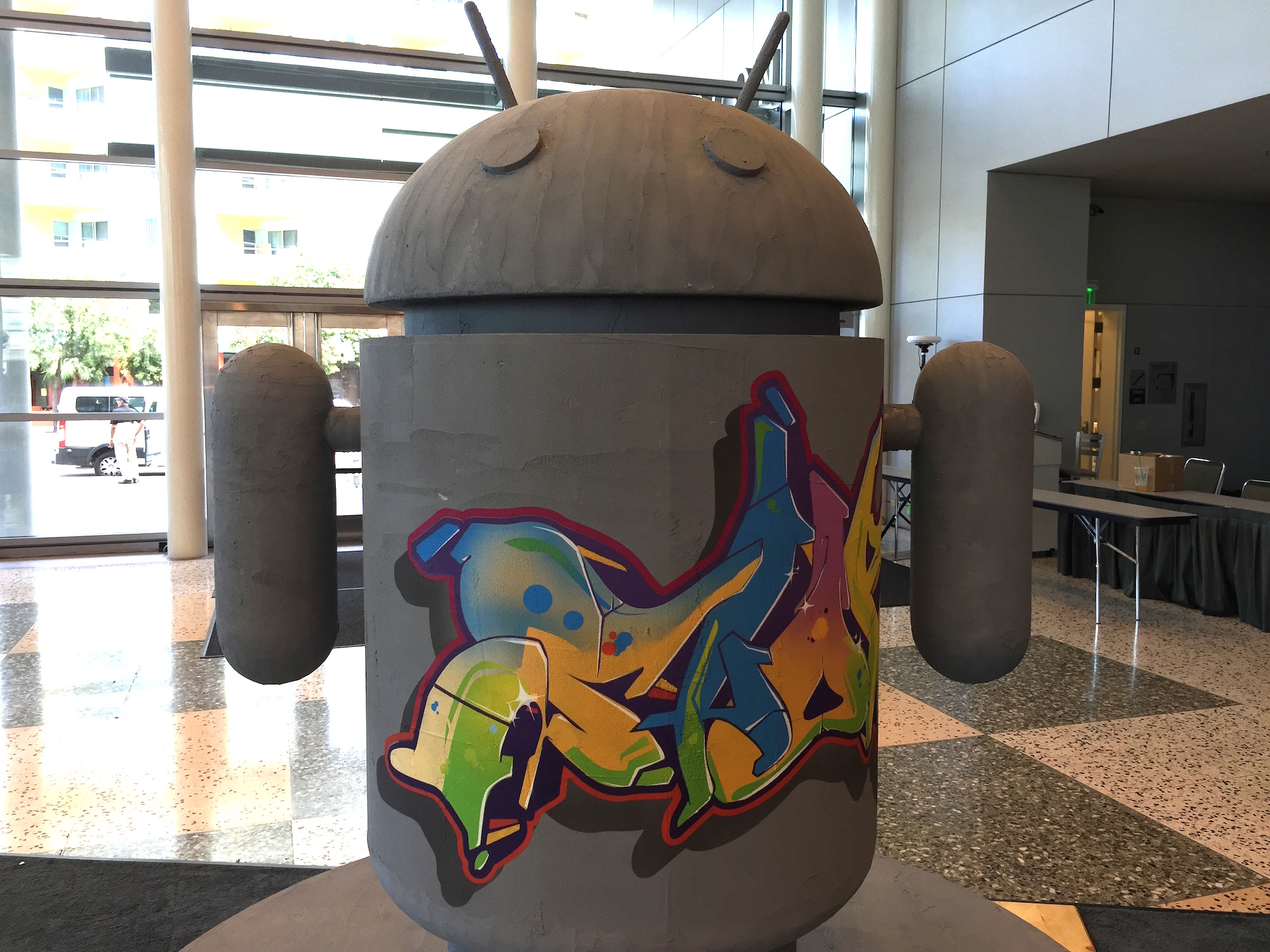
There’s been a strange quiet — disquiet — from Google in recent months. The company continues to update its first-party apps, and phones running Android are released at regular clips, but it feels like we’ve been waiting a long time for Google to stop meandering and give us something amazing.
That’s perhaps being a bit unfair, given how much Google is balancing between its proverbial fingers, from operating systems like Android and Chrome OS, to the proliferation of Material Design across mobile and the web, to moonshot projects like Project Ara, Tango and the biggest unknown of them all, Glass.
Tomorrow, when Sundar Pichai walks on stage to present this year’s crop of big announcements – eleven months ago, Google unveiled a preview of Android L (later, to be released as Lollipop), Android Auto, Android TV and a bevy of hints of the future of computing with Project Ara – he will be addressing a crowd of ravenous developers looking to dive into whatever the company has to offer.

We do know a few things: Android M will be announced and, like last year, an early developer preview will be made available to download (though, like last year, it will probably be nearly unusable). We know little about Android M but that it will be an iterative update, similar to the way iOS 8 built on the visual revamp of iOS 7. Google had more than a few critics upon the release of Android Lollipop; its new outfit was filled with holes, in the form of showstopping bugs and performance improvements, and it has taken nearly this entire release cycle to fix them.
Android M will probably include a number of new APIs, but the big one will be a new payment scheme dubbed Android Pay, which will work with (see the the trend?) a new series of fingerprint APIs that allows Google to do away with the one thing it hates: passwords. Google is part of FIDO, a consortium of companies that includes Visa, Samsung, Qualcomm, ARM, Microsoft and many others, looking to find alternative forms of authentication.
Like it did with a standardized Bluetooth stack in Android 4.3, adding de facto biometric standards to a new OS version will (slowly) allow OEMs to add universal support that developers can actually work with. At the moment, Samsung and Huawei are the only two developers actively using fingerprint sensors, and the former is taking advantage of that runway to launch Samsung Pay. But Google’s payment program has an advantage: the Play Store.

We’re also likely to see the next generation of Google’s Chromecast dongle debut at Google I/O. The Chromecast 2 is reported to have a significantly more powerful set of internals (for a dongle, so don’t expect miracles) that will allow it to be the bearer of gaming and other more advanced interaction methods. Google’s Cast network is growing – the Nexus Player is a good example of it – and with the recent launch of Cast for Audio, the company has taken on AirPlay, AllJoyn and other standards in a meaningful way.
And there are two areas that Google hasn’t quite delved into yet, but could move towards tomorrow: the Internet of Things, and Virtual Reality. For the former, Google is expected to announce Brillo, a low-powered open-source operating system that will power smart objects like lightbulbs and appliances. For virtual reality, Google’s already proven it can use its existing infrastructure to create wonderful things: Cardboard is an unqualified success, despite its lack of promotion or complexity.
Of course, on the software side we’re expecting a number of upgrades, including a standalone version of Photos, which has railroaded right over Google+, as well as improvements to Hangouts thanks to the company’s purchase of Emu Messenger.
We’ll have all the details tomorrow from Google I/O’s keynote, beginning at 9:30am PT / 12:30pm ET, so stay tuned!
MobileSyrup may earn a commission from purchases made via our links, which helps fund the journalism we provide free on our website. These links do not influence our editorial content. Support us here.


